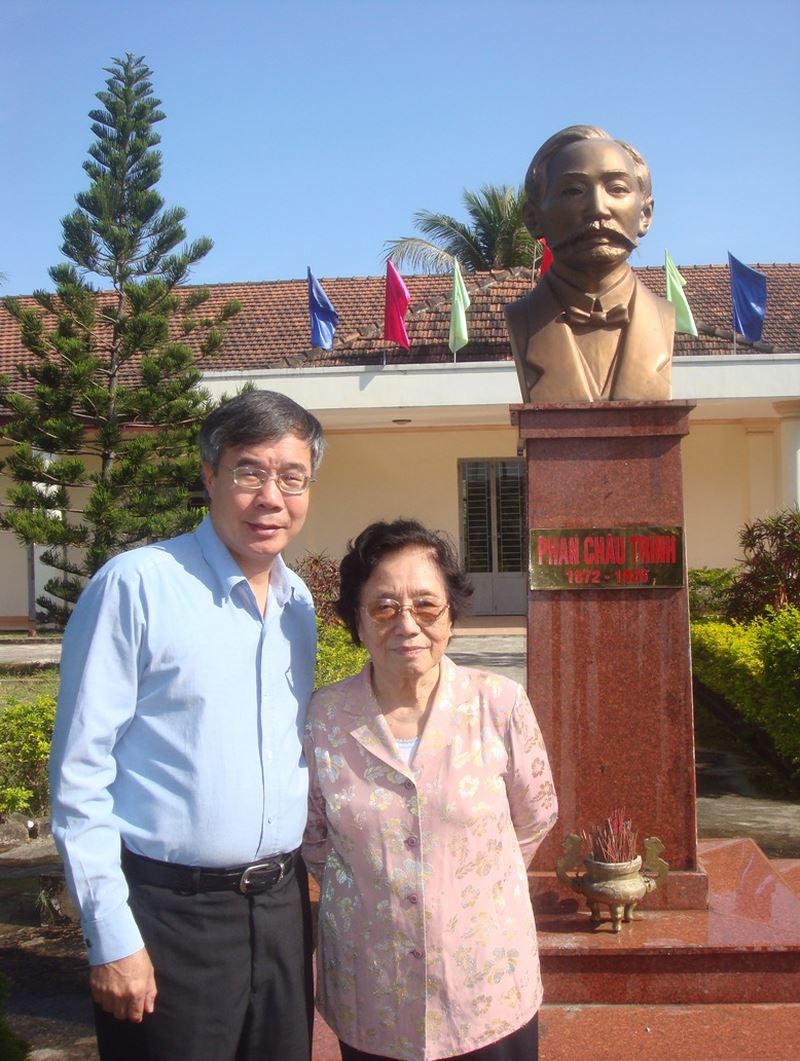
To address these concerns, Giaoduc.net.vn interviewed Mr. Tran Duc Canh, a member of the Board of Trustees at Phan Chau Trinh University, who has ten years of experience advising on admissions for the prestigious Harvard University. He aims to apply the experience gained from these models and admission processes to Vietnam, starting with Phan Chau Trinh University.
The idea of admissions based on these criteria has actually been discussed several times within the university’s founding council. However, due to existing admissions regulations set by the Ministry of Education, these criteria could not be implemented.
The criteria set by Phan Chau Trinh University are not new compared to international standards, especially in the United States. In the U.S., most prestigious universities use the following tools to select the best and most suitable students for their schools: 3-4 years of high school grades, SAT I and 2-3 SAT II subject test scores, or ACT scores, TOEFL scores if the applicant is not proficient in English, 2-3 essays (attached with the application), and 2-3 letters of recommendation from high school teachers or mentors, and direct interviews with applicants (some universities require this, some do not).
These are reasonable and effective criteria for assessing an applicant’s potential for academic success, thinking ability, ethics, and talents, aligning with the spirit, responsibility, and culture of the school. For mid-range or lower-tier universities in the U.S., the admission standards may be somewhat easier than those of prestigious schools.

ThS Tran Duc Canh takes a commemorative photo with Mrs. Nguyen Thi Binh, former Vice President and founding member of Phan Chau Trinh University.
The five criteria set by Phan Chau Trinh University fall within the “selection framework” according to our national education system. In my opinion, the order of importance is: 1) The average score in the high school transcript over three years, 2) University entrance exam scores, 3) High school graduation exam scores, 4) Basic knowledge and major exams, and 1-2 essays, 5) Applicant interviews.
Another criterion that could be implemented in Vietnam later is that each student should have 2 or 3 letters of recommendation from their high school teachers, but this is not feasible in the current context.
In general, to assess a potential applicant, university entrance exam scores are important but should only be part of the admission criteria, not everything. Even the criteria mentioned above should not be too procedural, rigid, or perfunctory. The ultimate goal is to select an applicant who is likely to succeed and fits the spirit and culture of the school.
Harvard University conducts interviews for over 34,000 applicants each year to select about 2,050 students. The number of 1,000 mentioned is not large. I understand the difficulties schools face regarding manpower and budget for this issue. However, if the school wants to select a student according to its requirements, it must invest time, effort, and budget. Admissions work is the most important aspect for prestigious schools in the U.S. If they do a good job with admissions, they are already 90% successful.
At Harvard University, because the acceptance rate is only about 6%, and most applicants are nearly equal in caliber, the selection process is very rigorous and difficult. Finding ways to filter out the best and most suitable applicants is never simple. The interview can tip the scales in close cases.
It’s true that interviews are qualitative, but there are methods to convert qualitative assessments into quantitative ones to calculate an average score for each applicant. Each teacher conducting an initial interview with about 30-40 students is not a large number. In the long run, the best way to organize this is to arrange for some Phan Chau Trinh alumni in various locations to interview applicants, and some who are far away and unable to interview in person can be interviewed by phone. They will undergo a training session to perform this task. The admissions department will work closely with and guide them during this period.
When done well, it will create a spirit and pride in Phan Chau Trinh among alumni, students, teachers, the school, families, and society, adding significant value to the school’s long-term development.
Initial difficulties may arise, but the school anticipates and gradually overcomes them. Furthermore, the interview score only accounts for up to 20% of the total score and is not the deciding factor. Evaluating a student requires looking at other points to make a comprehensive assessment. A criterion among the five doesn’t automatically stand out without attracting the Admissions Council’s attention. Through this interview process, teachers will understand the student’s thoughts and aspirations, and vice versa, students will also gain a deeper understanding of the school, its attention, and respect for each Phan Chau Trinh University applicant.
I don’t think it’s risky if you consider the long term. Implementing it for the first time within a limited space in Vietnam will undoubtedly face certain difficulties. However, these criteria have been applied to schools in the U.S. and many other countries. In the long term, education will develop to the point where every school should do the same.
In fact, the admissions plan has been discussed and considered by the school for a long time. These are the most suitable and advanced criteria for evaluating and selecting students now and in the long term, regardless of whether the school is public or non-public, and Phan Chau Trinh University is no exception.
I believe that to admit a student into a university, a long-term plan and goals must be established. The reputation of a school cannot be built by accepting students haphazardly. It’s no coincidence that good schools in the U.S. have at least 100 years or more of history; Harvard University alone has a 376-year history.
This is not something that can be accomplished overnight. To build Phan Chau Trinh University into a reputable institution will take 10 years, 20 years, or even 50 years. Education is an investment that requires thinking in the long term. If you only think about filling the numbers, regardless of quality, the school will only last 5-7 years, which is very dangerous for our national education system.
Every education system has its strengths and weaknesses. The U.S. is currently considered one of the most advanced education systems globally, attracting many of the world’s elite. They maximize creativity, diversity, and encourage a passion for research and learning with a high degree of applicability. Market factors and society’s long-term acceptance of its products (students) are key to their survival and development.
Vietnam is in a transitional phase, with some parts taking shape and others still undefined. However, to develop our education system and avoid negative outcomes, the best approach is to train people who are accepted by the market and society. A system that effectively and rationally utilizes trained individuals and highly specialized people is the only way to reduce negative aspects of education.
– Thank you for this conversation!
| Mr. Tran Duc Canh holds a Master’s degree in Economics and completed the Senior Executive Program at the John F. Kennedy School of Government, Harvard University. He is a former member of the Northeast Consortium of Colleges and Universities in Massachusetts (NECCUM). |
| He has 16 years of experience in managing and developing policies for Training and Human Resources Development Programs in Massachusetts and over 10 years of experience advising Harvard University on undergraduate admissions. Having lived, studied, and worked in the U.S. for 38 years, he remains deeply concerned about education in Vietnam. |